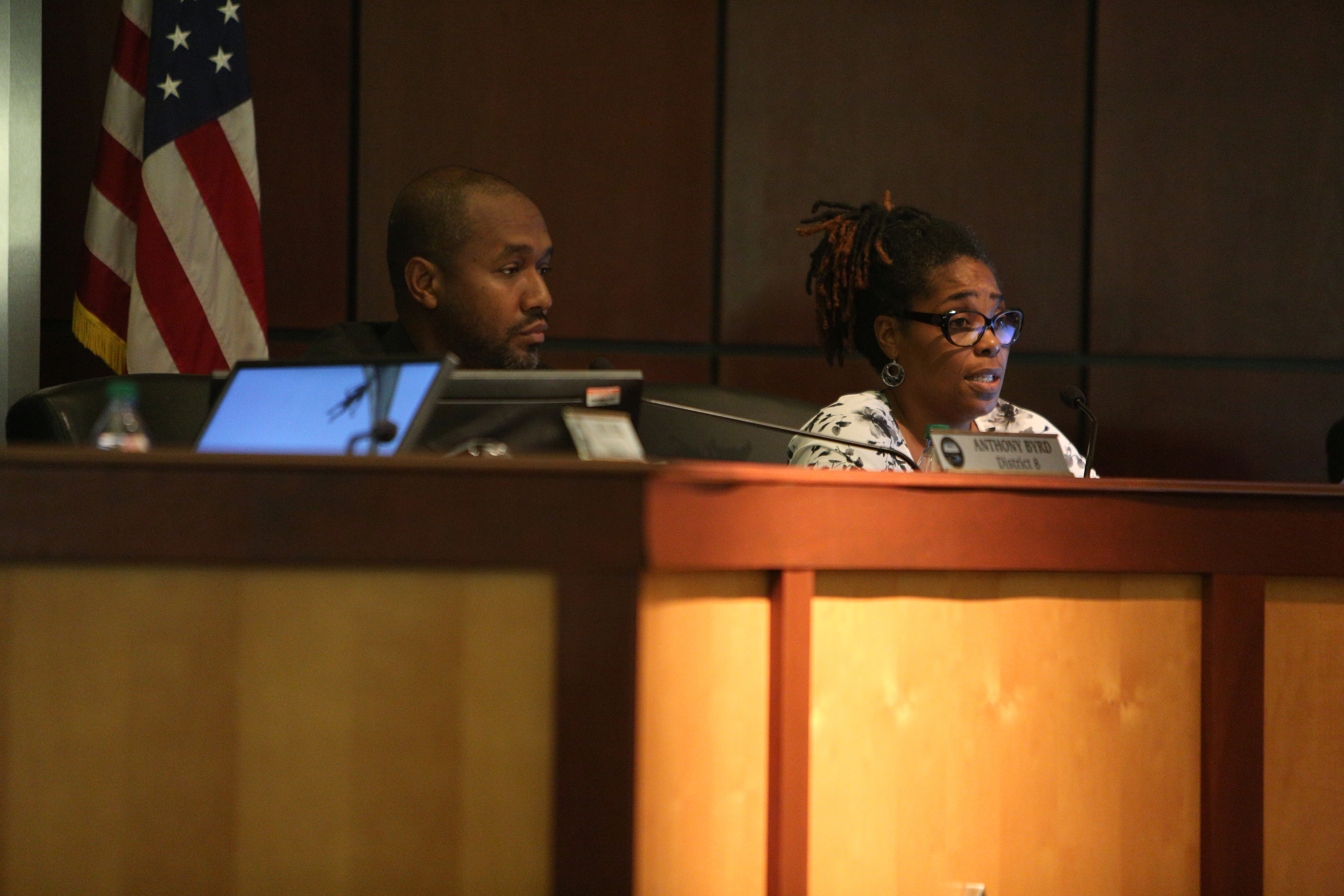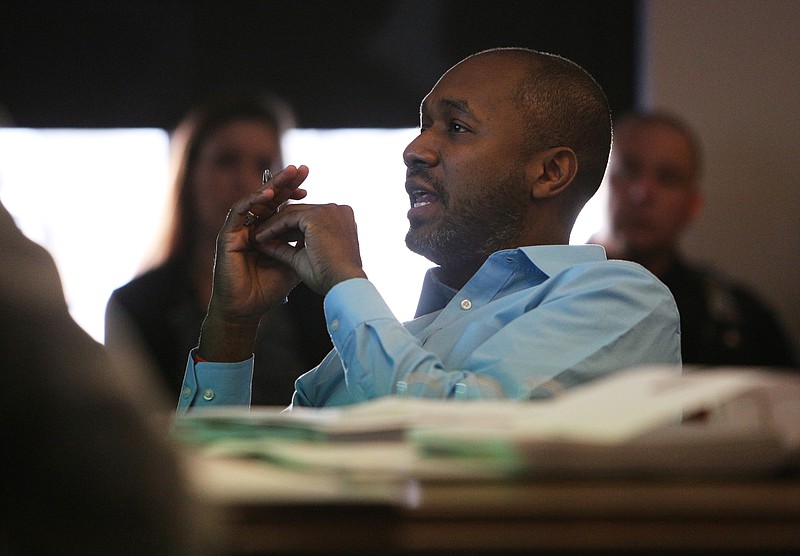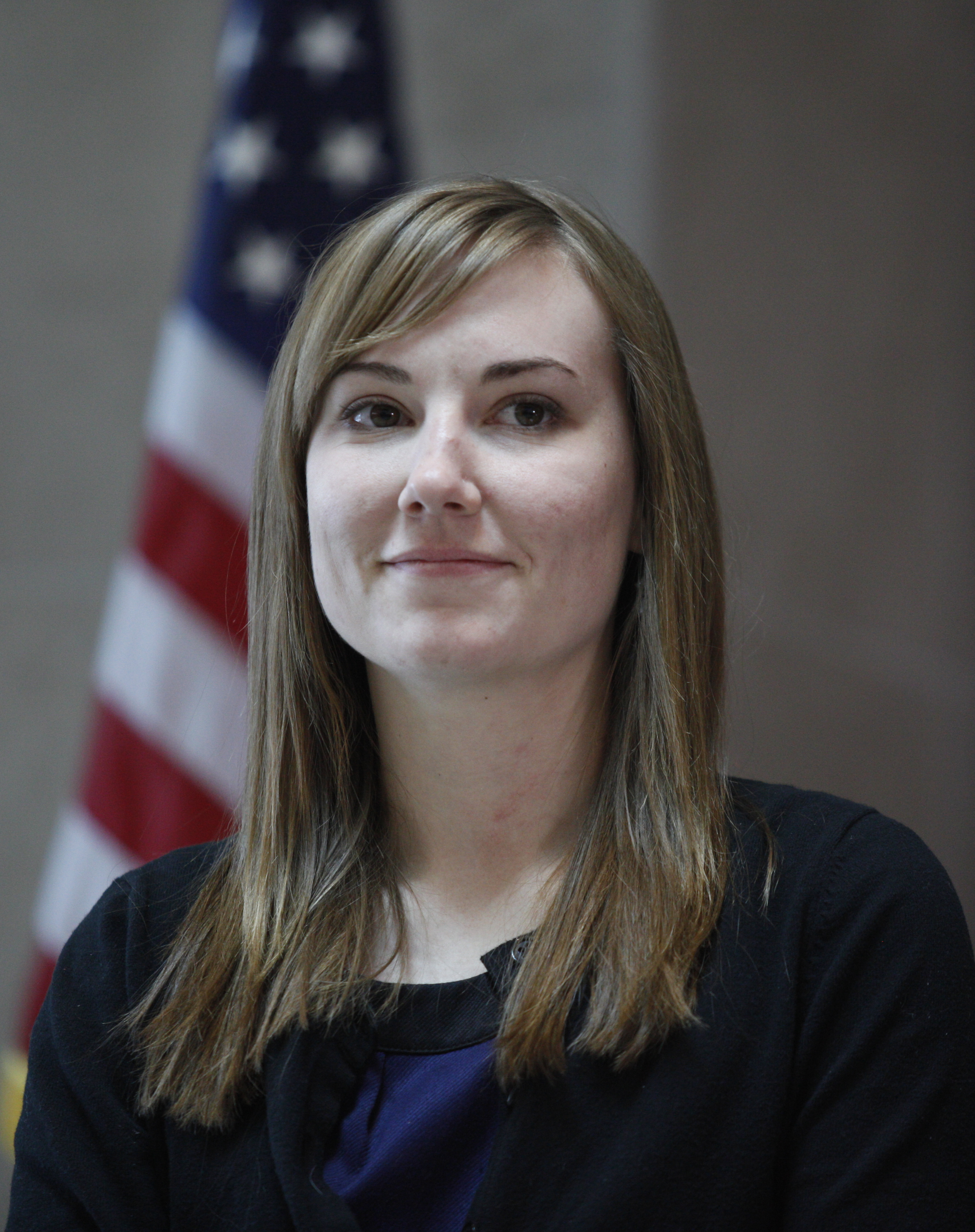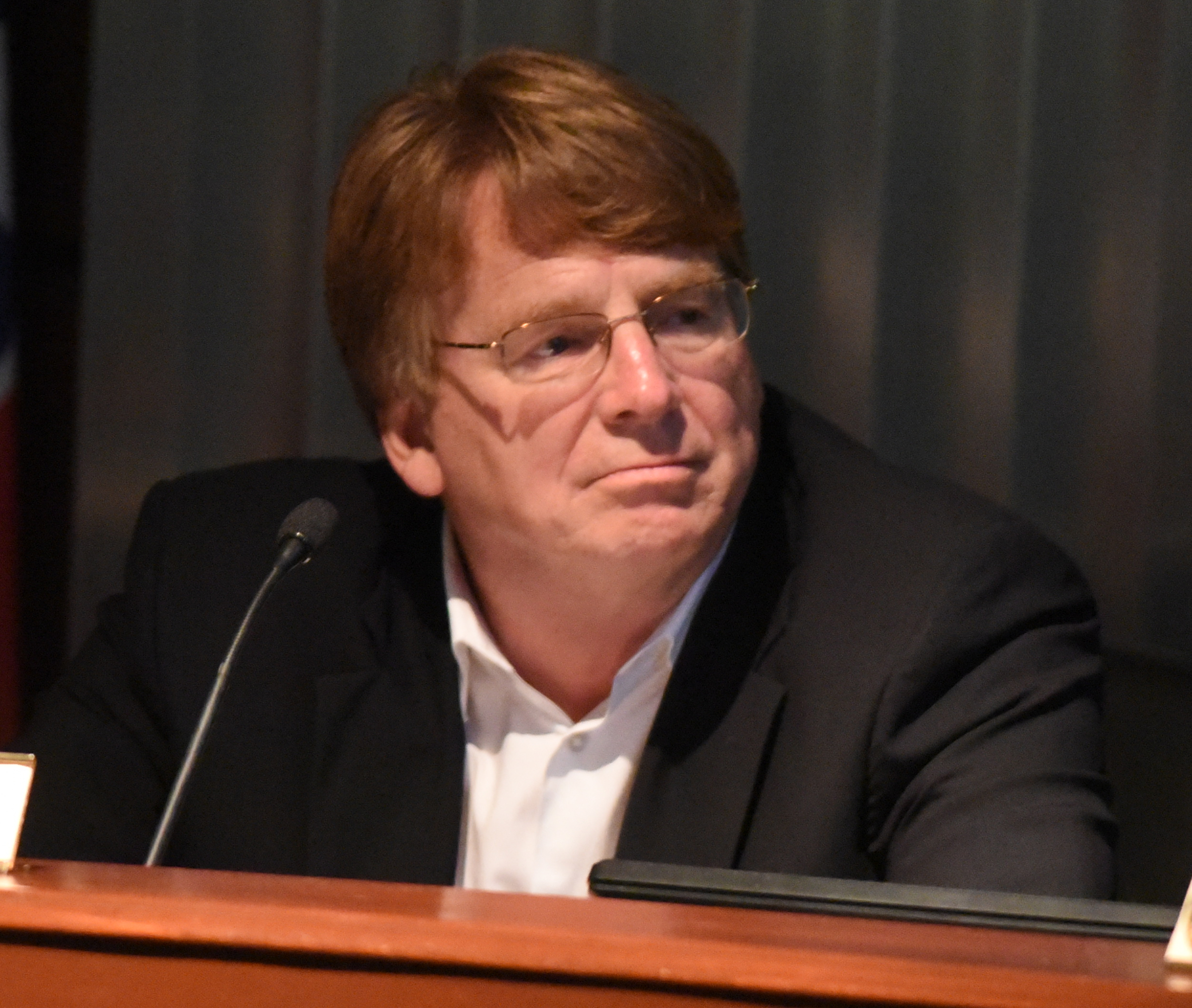The social services arm of Chattanooga Mayor Andy Berke's Violence Reduction Initiative was crippled when the city council rejected a provider contract in January.
Two months later - and about two weeks before the next scheduled gang call-in - there's still no contracted social services provider. Services such as education and job referrals, or help with housing and transportation, are being handled on a volunteer basis.
The administration and council are still feeling bruised and pointing fingers.
But they're also making plans. Councilman Anthony Byrd, chairman of the Public Safety Committee, is canvassing neighborhood groups and providers, hoping to rebuild a structure that relies on community resources to reach and help gang members who want to change their lives.
The administration, meanwhile, aims to take over social services case management for VRI clients in-house.
Stacy Richardson, Berke's chief of staff, said Monday the city will hire "navigators" to connect gang members who want to get out of the gang life with resources to help, from substance abuse programs to expunging criminal records, as well as referrals for schooling and jobs. A separate component will focus on mentoring and programs for youth, in hopes of keeping them away from gangs.
"The Violence Reduction Initiative has proven to effectively and sustainably reduce criminal activity while helping people figure out how to live safe and productive lives," Richardson said in an emailed statement. "As the Times Free Press reported in January, gang-related homicides fell 16 percent in 2017, and gang-related shootings dropped by 35 percent."
There are still details to work out, she said, but the city hopes to have a structure ready by budget time.
"... Our commitment to reducing violence is as strong as ever," Richardson said. "By building on a strategy that we know is effective, we will continue to drive down violent crime and gang behavior throughout Chattanooga. ... Everybody agrees there's a tremendous need, but the question is how do you maximize the resources to meet that need and the community's need?"
 Chattanooga City Council members Anthony Byrd and Demetrus Coonrod cast their votes for the confirmation of David Roddy as the Chattanooga Police Chief during voting session Tuesday, Aug. 22, 2017, in Chattanooga, Tenn. Coonrod has voiced concerns community members brought to her about Roddy, but in the end, believed it was time to give Roddy a chance to take on the role.
Chattanooga City Council members Anthony Byrd and Demetrus Coonrod cast their votes for the confirmation of David Roddy as the Chattanooga Police Chief during voting session Tuesday, Aug. 22, 2017, in Chattanooga, Tenn. Coonrod has voiced concerns community members brought to her about Roddy, but in the end, believed it was time to give Roddy a chance to take on the role. Byrd and Councilwoman Demetrus Coonrod, whose city districts see much of the impact of gangs, have been working on community solutions, but Chairman Jerry Mitchell said Monday that "this is the administration's task."
"It's great to be impassioned about wanting to see something happen, but the nine council people and three staff have little ability to make something work," Mitchell said.
Berke launched the VRI in 2014 as part of a widespread effort to combat gang violence with both a stick and a carrot by coordinating law enforcement, court and community resources.
Police and service providers hold occasional call-ins when gang members are summoned for pizza and straight talk: Put down the guns and get connected with job training, transportation and education services. Keep shooting and law enforcement will be keeping a sharp eye out, waiting its chance for arrests and prosecutions.
Results have been mixed, but Chattanooga isn't far from where it was when Berke first took office, according to some measurements.
The total number of shootings involving gang members in 2017 wound up at 64, just one more than the tally for 2014. The shooting rate jumped by a couple of dozen incidents through 2015 and 2016 before falling off again.
City Council balks
In 2017, case management was the job of local provider Father to the Fatherless [F2F]. The administration in January asked the council to approve a new contract with F2F, one that veered away from adult gang members and focused more on reaching middle-school-age children with mentoring and programs.
Council members loved the idea, but asked the administration for reports detailing F2F's work in the prior year: number of clients, types of services and providers, and qualifications of the case managers. When no information was provided the council refused to vote on the new contract. The council members still haven't been given the reports, several have said.
Email conversations obtained through an open records request show F2F Executive Director April Boozer provided several reports to city officials last year, including multiple documents with the information the council had asked for. Boozer sent several such reports to the mayor's office at the beginning of November, when its contract was expiring.
"My goal is to inform the community of the fact that F2F did turn in all data that was requested," Boozer said via email.
"We followed the same protocol as we have always followed regarding data due to the sensitivity of the nature of the report. Not sure who was responsible for ensuring that city council received the information," she wrote.
"Overall I need the community to understand that we did our part and we are still working without getting paid. All because somewhere there was a breakdown in communication, and we are getting the backlash of it all."
Byrd said the council was only doing its due diligence by asking for information.
"Father to the Fatherless, I think they've done great work ... but at the end of the day we have to be able to say to our constituents, this is what the money is being spent on," Byrd said.
"Take a basketball player or a football player and you're signing them to a team but you don't have their stats. At some point in time, if you're going for a job, that resume should be in front of you."
Community solutions
Byrd has been collecting community input and assessing resources, starting with a public meeting in February. He'd like to see money held by a nonprofit organization and doled out to providers, and he said he's hoping to get the $600,000 proposed for a two-year contract with F2F up to $1 million or more with help from donors, Hamilton County commissioners and foundations.
He's focused on programs to keep young people mentored, motivated and out of trouble via tutoring, athletics, field trips and whatever else works. He's also learned about existing programs and services offered through schools, the city's Youth and Family Development centers and the Family Justice Center. The trouble is, families who most need those services are perhaps least likely to know about them.
"Just getting the word out, letting people know this is available" is important, Byrd said. "I think this has been a major disconnect - if they don't know, they can't go. ... Opportunity is here and we need to present to the children and the parents that, hey, the city of Chattanooga has your back."
Contact Judy Walton at jwalton@timesfreepress.com or 437-757-6416.
Contact Emmett Gienapp at egienapp@timesfreepress.com or 423-757-6731.
Violence Reduction Initiative timeline
March 2014: Violence Reduction Initiative goes into effect, a combination of tough policing, community engagement and direct contact with violent offenders, to reduce crime.June 2014: One of the social service providers, A Better Tomorrow, is exiled from program after its director, Richard Bennett, is arrested on charges that later are dropped. Hope for the Inner City is the new provider.October 2014: Shootings and homicides were at 25, compared with 19 at the same point in 2013. But city says 61 gang members had gotten jobs, 23 were in mentorships, seven were earning GEDs and 90 violent gang members had been jailed under the VRI.December 2014: The Chattanooga Police Department’s point man on VRI, Lt. Todd Royval, asks to be reassigned away from the program.January 2015: Internal documents from Hope for the Inner City don’t substantiate claimed gains in jobs and education.March 2015: Chattanooga renews a $200,000 contract with National Network of Safer Communities, which helped with research and organization of VRI.September 2015: Hope for the Inner City gets $290,000 contract renewal. At this point there have been seven call-ins. To date for the year there were 59 gang-related shootings, compared with 60 in 2014 and 67 in 2013.October 2015: Eleven of the 12 permanent officers on the Street Crimes Response Team, the police spearhead of VRI, transfer out of the unit.November 2015: Hamilton County District Attorney Neal Pinkston states he supports the VRI, but claims it crosses an ethical line by asking him to target particular defendants.February 2016: The Times Free Press reports the vast majority of VRI offenders have avoided long sentences and significant jail time. Of 263 gang members arrested between March 2014 and February 2016, only seven received the maximum punishment and most were sentenced to probation, not jail time.March 2016: Public officials and Pinkston trade shots over the VRI. Pinkston writes in an open letter that “The VRI is not working because the city isn’t implementing many of the basic components the initiative requires.”April 2016: A violent gang war erupts, claiming multiple lives and sending many to the hospital with gunshot wounds.September 2016: The Times Free Press reports that nine women, more than any other year since at least 2011, have been killed in 2016 and half of those victims were associated with gang violence.December 2016: The homicide rate hits 32, a new high in recent local history. The city recorded 132 shootings in 2016, compared to 119 in 2015.April 2017: Police Chief Fred Fletcher announces he will retire at the end of his three-year contract. He says, “Our Department has made tremendous strides in the past three years. I know our brightest and most rewarding days still lie ahead.”September 2017: New Police Chief David Roddy says he wants to continue developing a police department that relies on technology, community relationships and focused deterrence to target individuals driving violent crime in the city.December 2017: Chattanooga’s homicide rate creeps up to 34, but shootings involving gang members drop to the rate seen in 2014.


